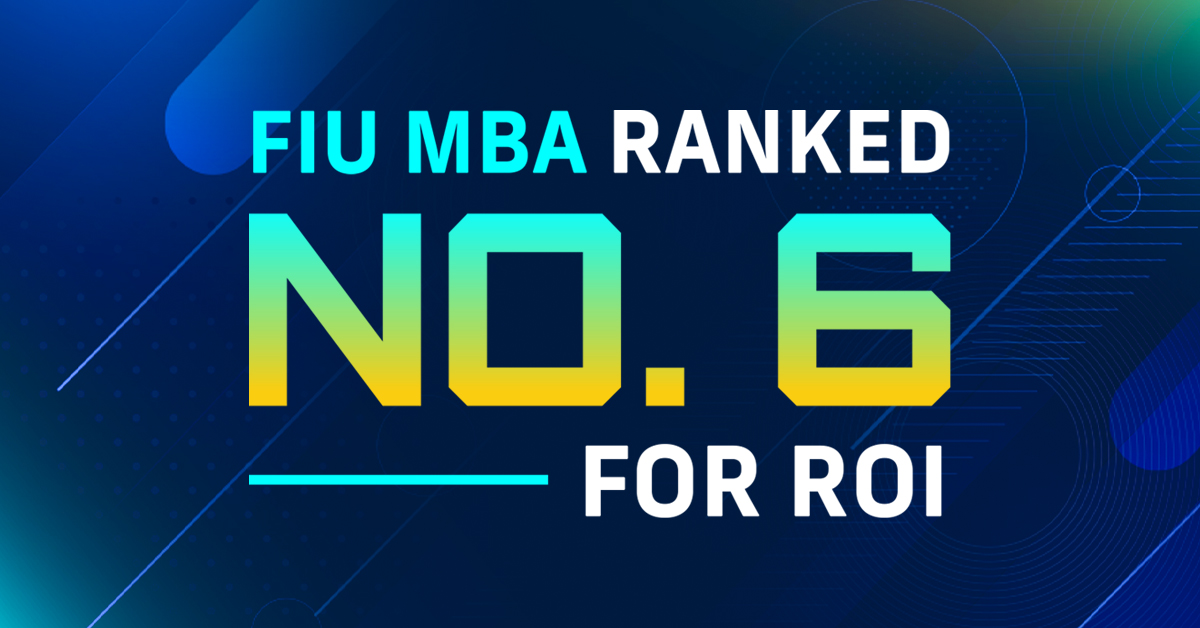The return on investment (ROI) of an FIU Business MBA ranks in the Top 10 among schools nationwide, according to the latest Bloomberg’s Business School ROI Calculator report.
The 2024-2025 report determined a master’s degree from FIU’s School of Business will deliver a 17.7% ROI annually on a student’s investment - which includes tuition, room and board, and other living and school expenses.
“Our success is that we’re focused on our students, the quality of our programs and their career opportunities,” said William Hardin, dean of FIU Business. “We’re not doing rocket science; we’re just focused on our students.”
According to Bloomberg’s report, the median ROI for all schools is 12.7%. These are based on Bloomberg Businessweek’s Best B-Schools ranking surveys of people who attended 77 different MBA programs in the U.S. and graduated in 2014 through 2023.
Built on the data reported to Bloomberg from surveys distributed to alumni for the publication’s annual rankings, the calculator is designed to help students determine whether pursuing an MBA is financially viable. If so, which are the best choices available to them among U.S.-based full-time MBA programs.
The Bloomberg Businessweek return-on-investment tool for business schools relies on a standard calculation for measuring financial success: profit relative to initial principal.
Calculating the investment included:
- Tuition, room, board and any other living expenses while out of the full-time workforce.
- Forgone income over the months spent attending school and any additional time out of the full-time workforce, based on pre-MBA salary, minus any money earned while at school from internships or other jobs.
- Interest on any student loans for their full term (usually 10 years).
Determining gross returns included:
- The difference between post-MBA and pre-MBA salaries for the 10 years after graduation.
- The value of any signing bonus after being invested for 10 years.

